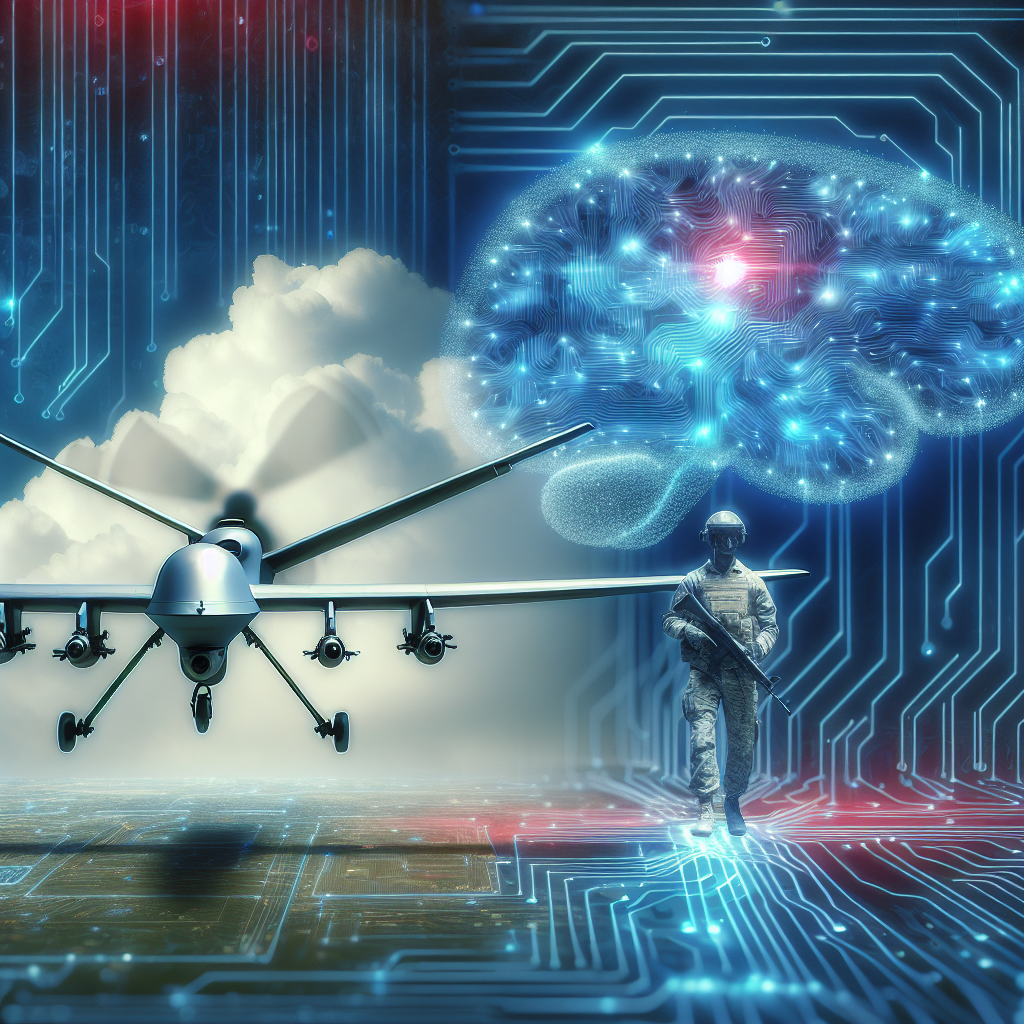The use of artificial intelligence (AI) software in military applications has the potential to revolutionize warfare, offering capabilities that were previously only seen in science fiction movies. However, with this great power comes great risks. As AI technology continues to advance, it is important to consider the potential dangers that come with using AI in military operations.
One of the primary risks of AI software in military applications is the potential for unintended consequences. AI algorithms are designed to learn and adapt based on the data they are given, but this can lead to unpredictable behavior. For example, if an AI system is given faulty or biased data, it may make decisions that are harmful or counterproductive. In a military setting, this could have disastrous consequences, leading to unintended casualties or escalating conflicts.
Another risk of AI in military applications is the potential for misuse or abuse. AI systems can be used to automate decision-making processes, but this also means that they can be used to carry out actions without human oversight. This raises concerns about the potential for AI to be used for unethical or illegal purposes, such as targeted assassinations or indiscriminate attacks on civilians.
Additionally, there are concerns about the potential for AI systems to be hacked or manipulated by malicious actors. As AI technology becomes more sophisticated, it becomes increasingly difficult to ensure that AI systems are secure from cyberattacks. If a hostile actor were able to gain control of an AI system, they could potentially use it to carry out attacks or sabotage military operations.
There are also ethical concerns surrounding the use of AI in military applications. AI systems are designed to make decisions based on data and algorithms, but this raises questions about the accountability and transparency of these decisions. Who is responsible if an AI system makes a mistake or causes harm? How can we ensure that AI systems are programmed to adhere to ethical principles and international laws?
Despite these risks, there are also potential benefits to using AI in military applications. AI systems can be used to analyze vast amounts of data and make rapid decisions in complex and dynamic environments. This can help military forces to respond more effectively to threats and make better-informed decisions in high-pressure situations.
One way to mitigate the risks of AI in military applications is to ensure that AI systems are designed with ethical considerations in mind. This includes implementing safeguards to prevent bias and ensure transparency in decision-making processes. It also involves establishing clear guidelines for the use of AI in military operations and holding accountable those responsible for the actions of AI systems.
In conclusion, the potential risks of AI software in military applications are significant and should not be taken lightly. It is important to carefully consider the ethical, legal, and security implications of using AI in warfare and to take steps to mitigate these risks. By addressing these concerns proactively, we can harness the power of AI technology to improve military capabilities while minimizing the potential for harm.
FAQs:
Q: Can AI systems be used to make autonomous decisions in military operations?
A: Yes, AI systems can be used to automate decision-making processes in military operations. However, there are concerns about the potential for AI systems to make decisions that are harmful or unethical without human oversight.
Q: How can we ensure that AI systems are secure from cyberattacks?
A: Ensuring the security of AI systems requires robust cybersecurity measures, including encryption, authentication, and regular security audits. It is also important to ensure that AI systems are designed with security in mind from the outset.
Q: What ethical considerations should be taken into account when using AI in military applications?
A: Ethical considerations when using AI in military applications include ensuring transparency in decision-making processes, preventing bias in AI algorithms, and establishing clear guidelines for the use of AI in warfare. It is also important to consider the accountability and responsibility of those involved in the use of AI systems.
Q: What steps can be taken to mitigate the risks of AI in military applications?
A: To mitigate the risks of AI in military applications, it is important to design AI systems with ethical considerations in mind, implement security measures to prevent cyberattacks, and establish clear guidelines for the use of AI in warfare. It is also important to hold accountable those responsible for the actions of AI systems and to ensure transparency in decision-making processes.

